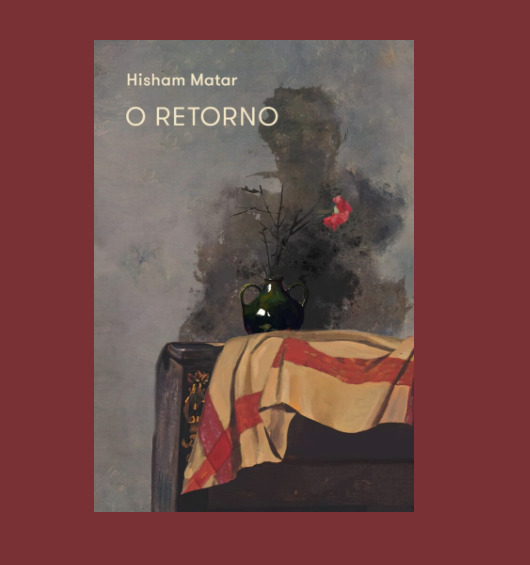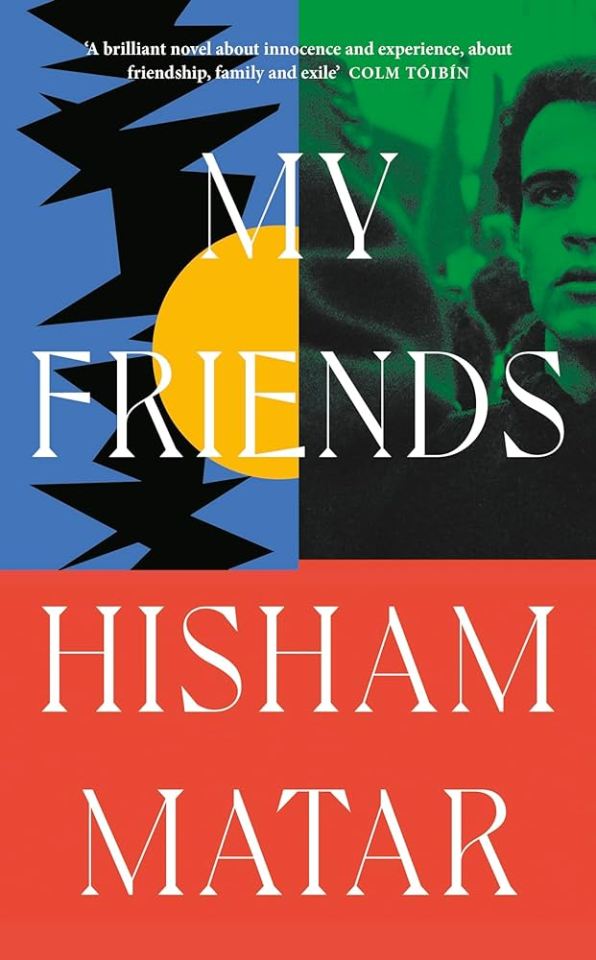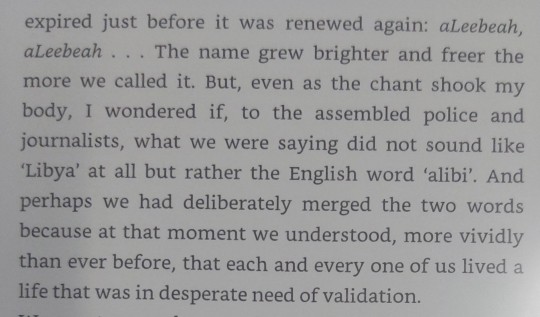#Hisham Matar
Text
“Something beyond language. I get frustrated this way so often. A photograph can say “This is what it was.” Language can only say “This is what it was like.””
— Hisham Matar, My Friends: A Novel (Random House, January 9, 2024)
513 notes
·
View notes
Text
Perhaps each one of us carries, along with everything that has happened, a private genealogy of rooms. Somewhere there is a collection of dining tables, a long line of beds, an assembly of chairs, countless doors we have opened and shut, a library of drawers into which we have placed the mundane as well as the valuable. Gathered in some imaginary museum, such a personal architectural inventory might be a compelling portrait of a life or the lives of several individuals, whose trajectories, whether by fate or chance or deliberate intent, had been intertwined with one another as firmly as a vine with a trellis.
— Hisham Matar, A Month in Siena
274 notes
·
View notes
Text
"Writers including Naomi Klein, Michelle Alexander, Hisham Matar, Isabella Hamad, and Zaina Arafat announced Wednesday that they will not participate in this year's PEN World Voices Festival over what they say is host PEN America's weak response to Israel's "cultural genocide" in Gaza.
"We have concluded that attending this year's festival would only serve to contribute to the illusion that PEN America is truly devoted to 'the defense of free speech at the center of humanity's struggle against repression,' as it has claimed," the writers said in an open letter published by Literary Hub announcing their decision. "In the context of Israel’s ongoing war on Gaza, we believe that PEN America has betrayed the organization's professed commitment to peace and equality for all, and to freedom and security for writers everywhere.""
#current events#pen world voices festival#naomi klein#michelle alexander#hisham matar#isabella hamad#zaina arafat#free palestine#ceasefire now#stop gaza genocide
4 notes
·
View notes
Text
"Asked if he was a pessimist, the English playwright Edward Bond replied: “Why am I talking to you if it is not a gesture of hope.” Lorenzetti’s Allegory, Caravaggio’s David and indeed the entire history of art can be read as that: a gesture of hope and also of desire, a playing out of the human spirit’s secret ambition to connect with the beloved, to see the world through her eyes, to traverse that tragic private distance between intention and utterance, so that, finally, we might be truly comprehended, and to do this not in order to advocate a position but rather to be truly seen, to be recognized, not to be mistaken for someone else, to go on changing while remaining identifiable by those who know us best."
Hisham Matar, A Month in Siena
21 notes
·
View notes
Text
Books Read in January:
1). Root and Branch (Eda Gunaydin)
2). Praying with Jane Eyre (Vanessa Zoltan)
3). White Sands (Geoff Dyer)
4). Taking a Long Look (Vivian Gornick)
5). The Return (Hisham Matar)
6). A Month in Siena (Hisham Matar)
7). Dickens and Price (Nick Hornby)
8). The Traces (Mairead Small Staid)
9). Who Will Pay Reparations on My Soul? (Jesse McCarthy)
10). Proofs & Theories (Louise Glück)
11). Citizen: An American Lyric (Claudia Rankine)
12). Bring Up the Bodies (Hilary Mantel)
13). Life Sentences (William H. Gass)
14). In the Margins (Elena Ferrante)
15). Marigold and Rose (Louise Glück)
#booklr#book list#my literary life#adult booklr#eda gunaydin#vanessa zoltan#geoff dyer#vivian gornick#hisham matar#nick hornby#mairead small staid#jesse mccarthy#louise glück#claudia rankine#hilary mantel#william gass#elena ferrante#(corresponding substack is up - message me if you want the link 📚)
3 notes
·
View notes
Photo


Bookcover forHisham Matar: https://ayine.com.br/
3 notes
·
View notes
Text
I wrote a longish piece on Hisham Matar for Hazlitt.
https://hazlitt.net/feature/missing

0 notes
Text
Review: My Friends by Hisham Matar

I read literary fiction predominantly to learn about periods of history and/or cultures that I really don't know very much about. I know very little about Libya or its history, so I was really looking forward to seeing what I could learn from this story.
During his childhood, Khaled hears a strange short story on the radio. Powered by the resonance of those words, he finds himself on his way to university in Edinburgh. The UK brings Khaled a new life of political activism against the Qaddafi regime, exile from his home country and fear of telling his parents the truth about his situation. Then he meets Hosam Zowa, the author of the story he heard all those years ago, and so begins a special friendship that opens Khaled's mind to who he really is and what's important.

In short, this book is mostly about Khaled and his friends, hence the simple yet apt title. It's about how his friendships have shaped who he is and the course of his life. It's also about how those friendships evolve and change over time.

Khaled clearly admires his father and I could see his influence in the man that Khaled wanted to become. Khaled's father looks at the dictatorship through an academic lens and I think that definitely colours his son's views. It is a really sensible way to think about politics, so it was easy to be on Khaled's side as such.

One thing that Matar did really well was describe the tension, the emotion and the uniqueness of being right in the midst of a public political protest. It's the turning point in Khaled's life and this scene was so vivid. It was also horrific and frightening to read but it felt so real.

As I said before, I knew very little about Libyan history and although I knew that the capital of Libya is Tripoli, which looks and sounds like a very Italian word, I never knew about Italian Fascism in Libya. This is definitely an area of political history I'd be interested in finding out more about.

I've never considered the presence of many books in a house to be a sign of permanence and stability but I guess it is. Moving stacks of books around regularly is extremely tiring and time-consuming, so it makes perfect sense that you'd only accumulate books once you're settled somewhere. This is why despite being a writer, Hosam has so few of them.

Naturally, the book speaks to migrants and those displaced by war and politics. Khaled's friend Rana was one of my favourite characters and I was really invested in her story. She's wise, kind and quiet and I'd have loved to have spent more time with her.
My Friends is an interesting, sprawling read about how vital friendships are to one's coming of age. However, there were times where I lost track of what was going on and who was who. So perhaps the characters could have had more distinct voices and the plot could have had more going on because it's definitely a character-driven novel. I have a feeling that this is going to be a big book this year though, so I'm interested to see the reception it gets.
0 notes
Text
I became, in silent and private ways, powerfully aware of the fragility of all that I treasured: my family, my very sense of myself, the future I allowed myself to expect.
— Hisham Matar, My Friends: A Novel (Random House, January 9, 2024)
58 notes
·
View notes
Text
It has always struck me as a paradox how in the solitary arts there is something intimately communal. And it suddenly became doubtful to me as we lay in Rome, as indeed it was now standing in the Sala dei Nove in Siena, whether I would have written anything or could ever write anything if I had never loved. Implicit in the act of creation is praise, of discovering and naming the world, of acknowledging it, of saying it exists. The French artist Henri Cartier-Bresson had once described taking a photograph as saying “yes,” not the “yes” of approval but that of acknowledgment. In the end, as it is in the beginning, love and art are an expression of faith.
— Hisham Matar, A Month in Siena
37 notes
·
View notes
Text

My Friends
By Hisham Matar.
1 note
·
View note
Text
"I had a sensitive and quiet teacher who was unusually frugal with his words, but who told me once that, to him, looking at nature—staring at the sea, for example—was equivalent to praise."
Hisham Matar, A Month in Siena
9 notes
·
View notes
Text
“Perhaps at the moment of murdering Goliath, David fathomed the extent of his desire, had understood the true scale of his own passion, and that something about this had unsettled him. Perhaps the moment he ended his opponent's life, David was overcome by the temptation, now forever thwarted, to try to see things through Goliath's eyes. Perhaps at that moment David understood the fault: that, because of the adamance of our beliefs and pas-sions, each one of us must live restricted by his or her own perspective. And that this has something to do with re-demption, that our redemptive instinct is found in our unequivocal sympathy for our enemy, and that to be a man is to live in the constant unresolvable tension of these two poles.
Away from the extremes of enemies, a similar desire exists between friends and lovers, perhaps more intensely between old friends and old lovers. Maybe my desire to see the green beside the Sant'Andrea al Quirinale or Loren-zetti's fresco or Caravaggio's painting or life itself through Diana's eyes is the expression of my hunger to achieve, in the words of my Tripoli friend, "complete conquest" over her and to resolve, once and for all, the mystery of her consciousness; but perhaps it is not that at all, but rather the expression of my redemptive instinct, my unequivocal sympathy for her, my desire to be inked by her and therefore momentarily escape the confines of my own exis-tence. Only love and art can do this: only inside a book or in front of a painting can one truly be let into another's perspective. It has always struck me as a paradox how in the solitary arts there is something intimately communal. And it suddenly became doubtful to me as we lay in Rome, as indeed it was now standing in the Sala dei Nove in Siena, whether I would have written anything or could ever write anything if I had never loved. Implicit in the act of creation is praise, of discovering and naming the world, of acknowledging it, of saying it exists. The French artist Henri Cartier-Bresson had once described taking a photograph as saying "yes," not the "yes" of approval but that of acknowledgment. In the end, as it is in the beginning, love and art are an expression of faith. How else to function with the limited knowledge we have? Asked if he was a pessimist, the English playwright Edward Bond replied: "Why am I talking to you if it is not a gesture of hope." Lorenzetti's Allegory, Caravaggio's David and indeed the entire history of art can be read as that: a gesture of hope and also of desire, a playing out of the human spirit's secret ambition to connect with the beloved, to see the world through her eyes, to traverse that tragic private distance between intention and utterance, so that, finally, we might be truly comprehended, and to do this not in order to advocate a position but rather to be truly seen, to be recog-nized, not to be mistaken for someone else, to go on changing while remaining identifiable by those who know us best.”
— A Month in Siena, Hisham Matar
1 note
·
View note
Text
“I live, as we all live, in the aftermath.”
- The Return, Hisham Matar
1 note
·
View note